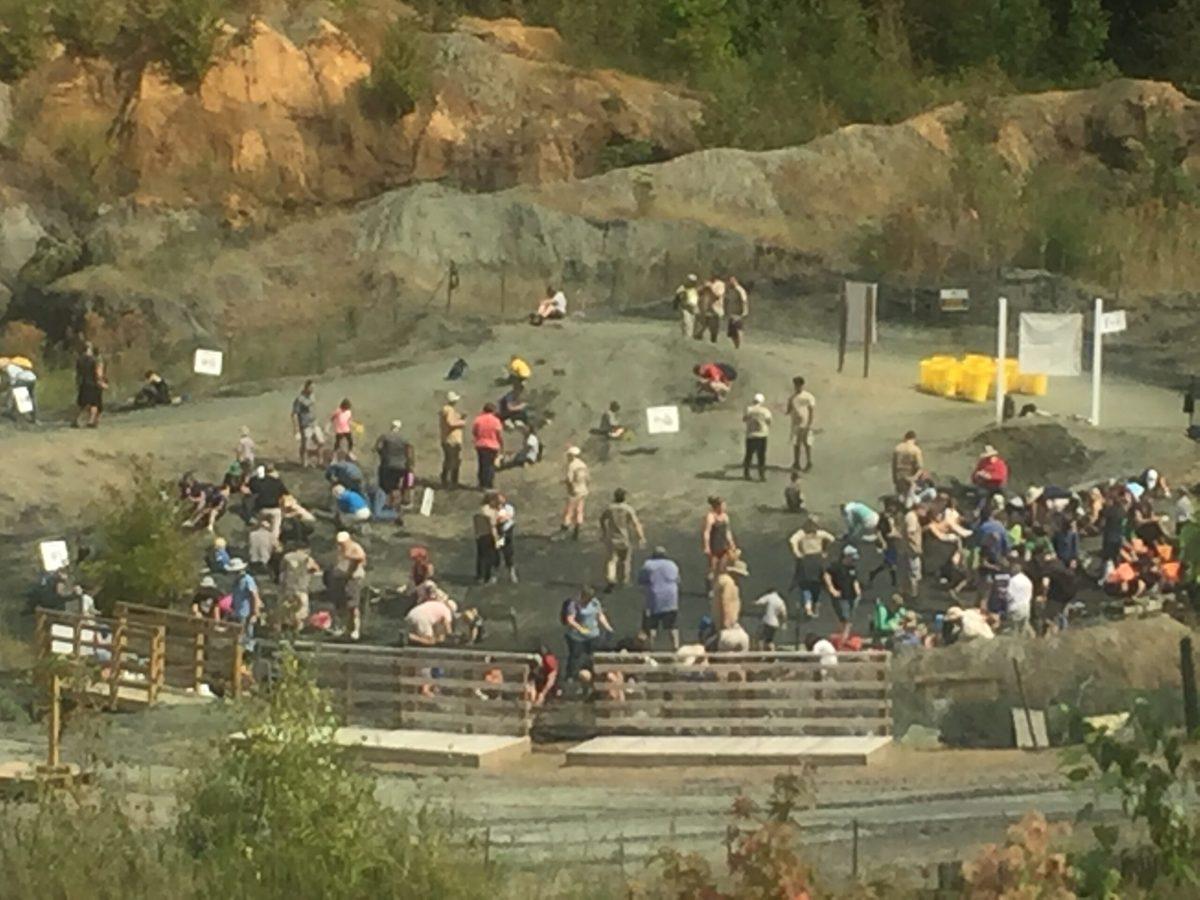On Saturday, Sept. 22, thousands of local residents swarmed Edelman Fossil Park of Rowan University for a day of digging.
The park, which is located in Sewell, New Jersey, hosted its 7th annual Community Dig Day, with a turnout of approximately 2,000 people. A fossil identification station was set up adjacent to the digging area, where diggers of all ages got a chance to learn more about their findings.
“The fossils that occur here are 65 million years old, and they are marine fossils,” said fossil park director and dean of the School of Earth and Environment, Dr. Kenneth Lacovara.
Mackerel shark teeth, turritellidae that are shaped like snails and Cucullaea vulgarisms clams were some of the fossils that members of the community learned about.
The fossil park has over 9,000 people on the waiting list, according to Lacovara.
“When we first started this event seven years ago, I was hoping to get 75 people, but we actually got 1,700 people that day,” Lacovara said.
He went on to express that the kids who come get to see science in action, with the hope that they may start to see themselves as future scientists.
“My favorite part was finding fossils, but they were hard to get,” said six-year-old Jonathan Romeo from Sicklerville, New Jersey.
Aside from the actual digging, vendors were set up to further educate and entertain members of the community. Vendors included 70-year-old Gloucester County Nature Club, Rowan University’s own geology department and a vendor that sold arm bands and dinosaur pencils. The proceeds of the latter were donated to the fossil park.
“We can’t do this without the volunteers,” Lacovard expressed.
For the day’s festivities, 100 volunteers were needed, and they got them in no time.
“I volunteered to get a prerequisite for a class, but I realized how cool it was, and now I keep coming back,” said junior biology major Bailey Sanders.
Two years ago, Rowan alumni Ric and Jean Edelman donated $25 million towards the site, thus adding a new museum which is already in its design phase and is set to be finished in 2021. Lacovara is hopeful that the new museum will be an international tourist destination and help to put Rowan University, as well as its surrounding communities, on the global map.
For comments/questions about this story, email [email protected] or tweet @TheWhitOnline.

























































































































































!["Working with [Dr. Lynch] is always a learning experience for me. She is a treasure,” said Thomas. - Staff Writer / Kacie Scibilia](https://thewhitonline.com/wp-content/uploads/2025/04/choir-1-1200x694.jpg)









































